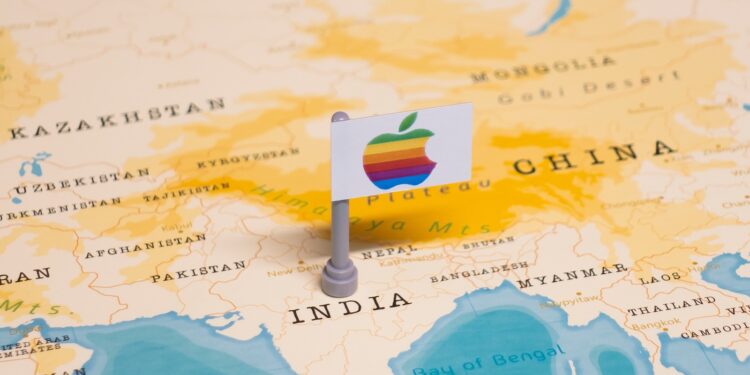Apple has been trying to reduce its dependence on manufacturing in China for some time. An important step in this effort was the expansion of iPhone production in India. But this very plan has now suffered a significant setback. Supplier Foxconn, one of Apple's most important partners, has withdrawn several hundred Chinese engineers and technicians from its Indian factories. Here, we take a closer look at what this means for Apple.
For years, Apple has produced the majority of its iPhones in China. But due to trade conflicts, geopolitical tensions, and pressure from Western customers to diversify supply chains, Apple is looking for alternatives. India has become a focus of attention. The country offers a growing industry, a large workforce, and government support. Foxconn, in particular, is pushing ahead with the expansion of production in India. But now there are problems, and they directly affect the heart of manufacturing – the workforce.
Foxconn brings Chinese skilled workers back from India
According to a Bloomberg report , Foxconn has withdrawn more than 300 Chinese employees from India in the past two months. These are engineers and technicians who worked at the iPhone factories in southern India. Their job was to oversee production processes, train local workers, and ensure smooth operations. While Taiwanese specialists will remain on site, the withdrawal of the Chinese team comes at an inopportune time. Apple and Foxconn are currently preparing to produce the iPhone 17. At the same time, Foxconn is building a new production facility in southern India. The experience and know-how of the Chinese specialists were a crucial part of the plan to bring the Indian site up to the desired quality level.
Possible reasons for the withdrawal
The reason Foxconn withdrew the employees has not been officially confirmed. Bloomberg suspects that Chinese authorities are behind it. There are indications that China wants to introduce stricter controls on the transfer of technology, know-how, and personnel abroad. The goal may be to protect its technological edge and prevent Chinese companies from transferring too much knowledge to India or Southeast Asia—regions that are increasingly being considered as production locations by Western companies.
What this means for Apple
For Apple, the withdrawal is a setback, although not a complete standstill. Indian production continues, but according to a Bloomberg insider, efficiency on the production lines is expected to decline. The Chinese employees were considered experienced specialists who knew Apple's high standards from practice. Their absence could impact the speed and reliability of production, even if the quality of the devices is not expected to suffer directly. Apple CEO Tim Cook has repeatedly emphasized in the past how central the expertise of Chinese production workers is to the company's success. The current incident underscores precisely this: India offers potential, but lacks experience and well-established processes – things that Apple has previously sourced heavily from China.
China’s role remains central
Despite all efforts to become more independent, Foxconn continues to manufacture the majority of iPhones in China. Whether India can assume the same role in the long term remains to be seen. Without the support of experienced Chinese specialists, it could take significantly longer for Apple to achieve the desired production quality and efficiency in India.
iPhone production: Apple reaches the limits of its independence plans
The withdrawal of Chinese engineers from India demonstrates the fragility of Apple's diversification strategy. India remains an important future location for Apple, but its implementation is more complicated than planned. China's political and economic influence continues to have a direct impact on Apple's global production strategy. How well Apple manages to become less dependent on this influence will become clear in the coming years – and depends, not least, on whether it succeeds in establishing a similarly efficient manufacturing environment in India. (Image: Shutterstock / hyotographics)
- Apple sells significantly more Macs – this is what’s behind it
- Apple postpones new features for users in the EU
- Apple under pressure: US antitrust lawsuit remains in place





